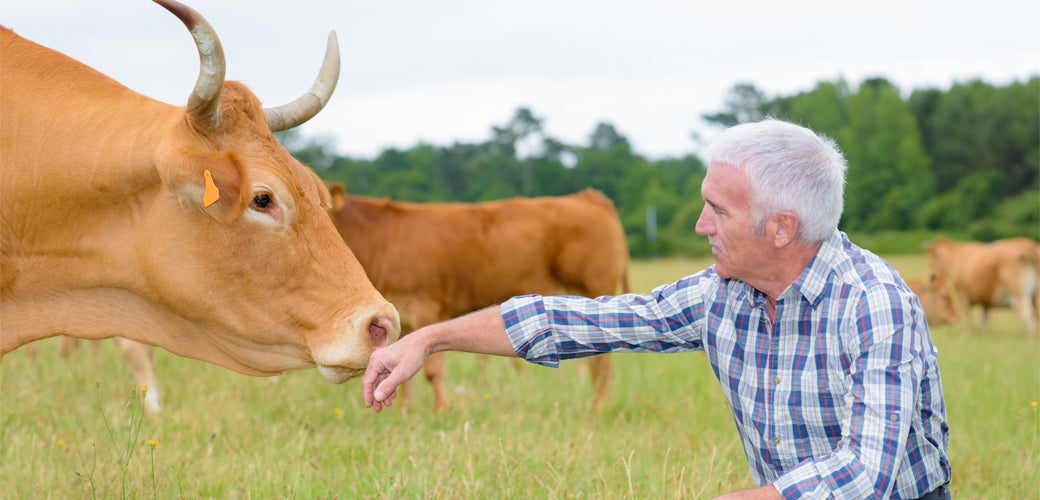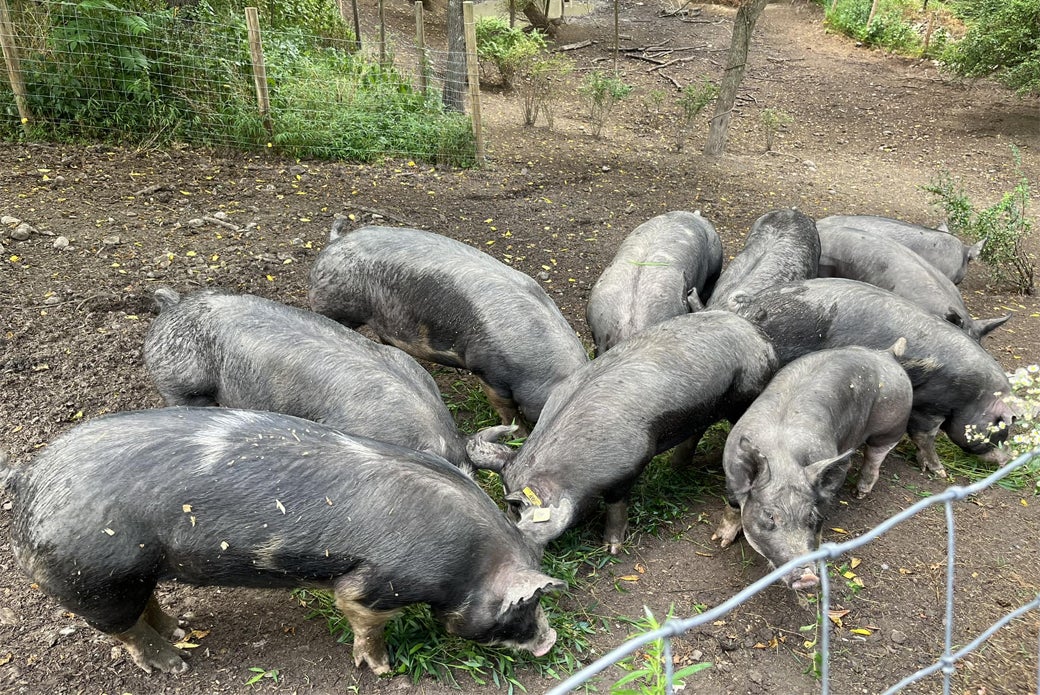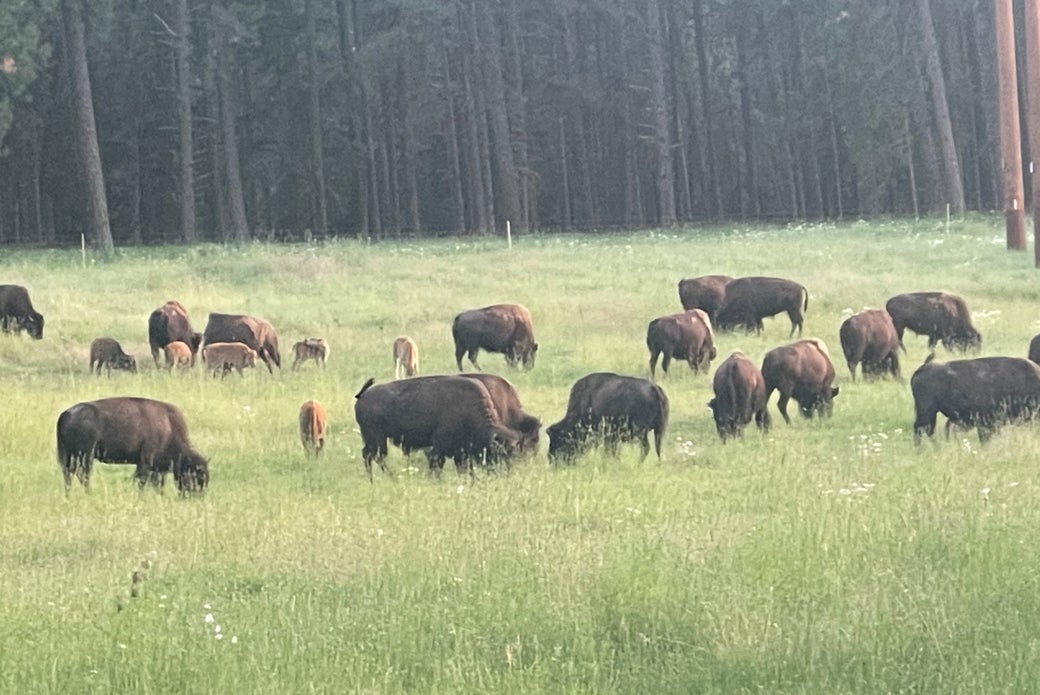
Investing In Farmers Who Are Building a More Humane Food System

It’s no secret—our food system is broken. Almost 10 billion animals are raised for food each year in the U.S., and most spend their lives on factory farms where they are so confined, they can’t carry out their natural behaviors. They are never able to graze on fresh grass or feel the sunlight on their backs. This same system has destroyed communities, economies, family farms, and it is destroying our planet.
Creating a food system that is more humane, fair and sustainable is possible, and we are excited to support farmers doing their part to make it happen!
Fund-a-Farmer Grants
Earlier this month, Food Animal Concerns Trust (FACT)—an organization that works to ensure all food-producing animals are raised in a more humane and healthy manner—announced new grants to farmers who are committed to better treatment of farm animals and sustainable farming practices. Funded in part by the ASPCA since 2017, FACT’s Fund-a-Farmer grants are provided to farmers who want to obtain or who already hold a meaningful animal welfare certification, as well as to farmers who are improving their animals’ access to pasture.
FACT recently awarded 87 Fund-a-Farmer Grants totaling over $253,000 to farmers located in 34 states and the District of Columbia. Since 2012, FACT has cumulatively awarded 608 grants totaling over $1.1 million to farmers, directly benefiting an estimated 978,600 animals. This year, 18 of those Fund-A-Farmer Grants were underwritten by the ASPCA, bringing the total of ASPCA-supported farms through FACT since 2017 to 111. Providing these grants is an important part of our efforts to build a more humane farming system as an alternative to cruel and unsustainable factory farming.
Those supported by this year’s grants include:
- ALL Family Farm in Middletown, New York, received a grant to expand their Berkshire pig paddocks into woodland to create a rotational pasture system.

- Green Rock Farm in Winchester, Virginia, received a grant for $3,000 to develop a sorting protocol for sheep, cattle and guard donkeys that is less stressful for the animals and allows them to stay on pasture while they are individually sorted and inspected to ensure everyone is strong and healthy.
- Harlow Ranch Bison Company in Thompson Falls, Montana, received a grant to expand pasture for beef cattle and bison by purchasing and installing a solar pump kit with solar panels, allowing animals easier access to water on pasture.

- Circle O Livestock LLC in Vale, Oregon, received a grant to install fencing and build eight paddocks on 12 acres to spread out swine breeding stock and allow land rest, regrowth and parasite cycles in the pasture to break.
New Federal and State Policies Supporting Higher-Welfare Farming
The transition to a more humane farm system also requires policymakers to act. The demand for funding to support farmers transitioning to and expanding their higher-welfare and welfare-certified operations far outstrips the supply. FACT’s grants are a telling example of that gap—over 735 applications were received this year from farmers across the country, and there was only enough funding to award grants to 87 farms. Thankfully, two new federal and state bills aim to fill that gap:
The Food and Farm Act
Introduced by Representative Earl Blumenauer (D-OR), the Food and Farm Act focuses resources on those who need it most and encourages investments in farm animals, people and the planet. One of the key highlights in the bill is the creation of a new animal-welfare certification tax credit that would help farmers afford the costs associated with achieving an independent animal-welfare certification. The tax incentive mirrors other successful initiatives to encourage the adoption of other beneficial business practices, like renewable energy, and would help famers pay for improvements including:
- Providing animals with cage-free, enriched indoor environments, including upgrading infrastructure to enable free movement of animals, purchasing enrichment materials to encourage animals to carry out their natural behaviors, and upgrading facilities to improve ventilation and provide natural light.
- Providing animals access to the outdoors/pasture, including fencing to enable pasture access, mobile or permanent outdoor housing, and infrastructure to support feeding and watering animals outdoors.
California’s Resilient and Higher-Welfare Grant Program
The ASPCA is proud to be leading a new bill in California (A.B. 1232) to establish the Resilient Farms and Ranches Grant Program under the California Department of Food and Agriculture's Animal Care Division. The program will have a positive impact by:
- Helping farmers and ranchers adopt more humane and holistic standards of care, improving the lives of potentially millions of farm animals.
- Transitioning farmers to more climate-friendly practices, including raising animals on pasture.
- Giving farmers and ranchers who have been subjected to racial or ethnic prejudices without regard to their individual qualities a head start in meeting animal-welfare standards.
- Expanding access to local, higher-welfare food in schools and other public institutions.
- Positioning California as a leader in the movement toward more humane, welfare-certified farming systems.
This new bill is a great example of prioritizing government funding to invest in farmers who are transitioning to and expanding higher-welfare operations.
We are committed to advancing policies like these across the country to improve the lives of farm animals, but they won’t pass without support from people like you. Join the ASPCA Advocacy Brigade today to help build a more humane food system!
